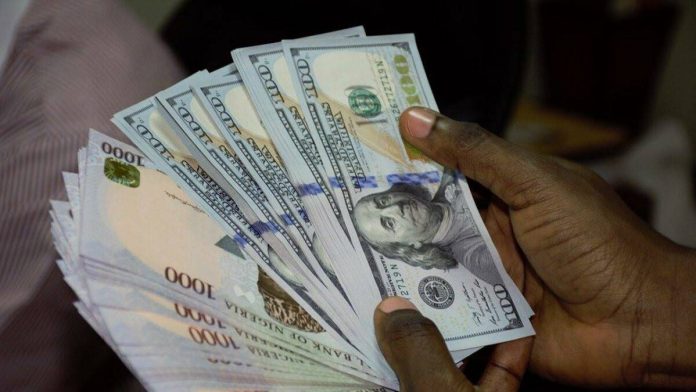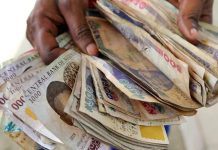The Nigerian naira weakened against the US dollar last week, closing at ₦1,603.78 at the Nigerian Foreign Exchange Market (NFEM), despite significant foreign exchange interventions by the Central Bank of Nigeria (CBN).
The depreciation, which represents a 2.35% week-on-week decline, comes amid dwindling external reserves and persistent dollar demand from offshore investors.
According to official data, Nigeria’s external reserves stood at $38 billion, though the CBN clarified that net foreign exchange reserves are $23 billion—a marked improvement from 2023 levels, attributed to ongoing reforms.
In response to mounting pressure on the naira, the apex bank injected approximately $634.85 million into the market across multiple sessions to stabilise rates and ease volatility. Analysts at CardinalStone Partners estimate that at the current pace of FX interventions, Nigeria’s net reserves could sustain demand for up to 32 months.
Despite these efforts, demand for the greenback remained high, driven by foreign portfolio investors rotating out of naira-denominated assets. Compounding the issue is the recent dip in FX inflows from remittances and other foreign sources, which traditionally bolster dollar supply.
Market data showed heightened volatility in exchange rates. The NAFEX fixing fluctuated between ₦1,616.63 and ₦1,643.33, while trades on the B-match platform ranged from ₦1,490 to ₦1,665, reflecting the wide gap between supply and demand.
Meanwhile, the global commodities market experienced a sharp uptick. Brent crude rose to $64.76 per barrel, gaining 2.26%, while WTI crude ended at $61.50, also up by 2.38%. The rally followed remarks by US Energy Secretary Chris Wright, who hinted at potential actions to curb Iran’s oil exports in response to nuclear tensions.
In addition, gold surged past the $3,200 mark, climbing to a record $3,245.28 per ounce before settling at $3,235.89, amid rising global recession fears and the intensifying US-China trade dispute.











